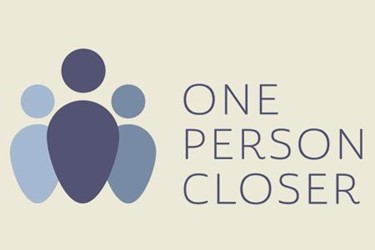One Person Closer Attempts To Inspire Doctors & Patients

By Ed Miseta, Chief Editor, Clinical Leader

Patient recruitment remains a challenge for most companies performing clinical research. One of the factors that will lead to many individuals being completely unaware of trials is the limited communication between doctors and patients about opportunities to participate in clinical studies.
In an attempt to promote more and better discussions between patients and their physicians, TransCelerate is sponsoring a global campaign aimed at addressing the patient recruitment challenge, and the studies on ClinicalTrials.gov that are now attempting to recruit 58 million participants. Unfortunately, 20 percent of sites will never enroll a single patient, and research shows 80 percent of trials will be delayed or outright cancelled due to a lack of study volunteers.
TransCelerate BioPharma is a non-profit organization dedicated to simplifying and accelerating research and development into innovative new therapies. The campaign, called One Person Closer, will focus on inspiring healthcare professionals (HCPs) to believe in the positive value of clinical research for their patients. It will attempt to do so by sharing authentic stories from researchers, HCPs and patients. Additional activities from TransCelerate, launching after One Person Closer, aim to incorporate the topic of clinical research into HCP’s daily practices and help them engage in meaningful discussions with patients about opportunities to participate in specific trials.
Medical breakthroughs would not have occurred if not for the patients volunteering their time and effort to participate in clinical trials, and the treating physicians trusting and working with the research enterprise. One Person Closer will attempt to put a human face on R&D by sharing the personal stories of researchers, physicians, and patients who have contributed to clinical research. The photojournalist campaign aims to initiate a digital, grassroots movement to remind doctors, nurses, and other HCPs that research that can lead to a breakthrough and ultimately benefit their patients.
A Source For Information
It’s difficult for patients to find information on clinical trials. ClinicalTrials.gov, a government website listing all current trials, can be difficult for individuals to navigate. When patients are considering trial participation, they also prefer to discuss that decision with a trusted advisor. For many, that would be their primary care physician or nurse. In fact, many patients will not even consider clinical research as an option without the support of their primary HCP. Unfortunately, the lack of knowledge about trials, and the lack of interest in them by HCPs will prevent many of those discussions from taking place.
Joseph Kim, senior advisor of clinical innovation at Eli Lilly and Company and lead for TranCelerate’s Clinical Research Awareness Initiative, notes research on new drugs takes too long, in part because of the delays brought on by the patient recruitment process. If we can change both the hearts and minds of doctors, nurses, and other HCPs will we be able to bring discussions of trials into discussions between HCPs and patients and, in doing so, help to overcome the recruitment challenge by activating this key enabler.
The One Person Closer campaign currently showcases the trial participation stories of 12 researchers, patient advocates, and thought leaders. All of the participants work or have worked for industry leading research organizations, hospitals, and charities involved in clinical research. The institutions include Massachusetts General Hospital Cancer Center, Cincinnati Children’s Hospital, the Cystic Fibrosis Foundation, and the David H. Koch Institute for Investigative Cancer Research.
Real Stories, Real People
According to Kim, the name One Person Closer originated with the desire to capture the human element of the campaign. It emphasizes the notion that each person matters, and that when it comes to clinical trials, even one person can make a big difference.
The campaign features patients and HCPs because it was believed their message would carry the most weight. “People like to hear from their peers,” he says. “That is why we placed the focus of this campaign on real patients and HCPs. We felt there would be a greater impact on people if they heard authentic, candid, and unscripted stories from individuals who were personally impacted and affected by their participation in clinical research.”
Now that production is complete, getting the videos in front of HCPs will be the next challenge. Kim notes the world is now digital and social, and those two trends will continue to pervade all sectors of our lives. He believes more and more HCPs will continue to get online in some form or fashion, and the evidence continues to support that.
“We felt we needed to focus our efforts on both broad digital forums like Facebook and Twitter, as well as more HCP focused forums like Figure1 and SERMO,” he states. “We hope to leverage HCP influencers who already discuss and promote the topic of clinical research, so as to generate a buzz that will amplify our message even further.”
The beauty of digital and social is that there are a lot of things that can be measured, such as likes, views, shares, and engagement. That is something that would be difficult to do with traditional media formats. The hope is that the impact of this initial campaign encourages more investment into this kind of content development, not just by TransCelerate, but individual member companies and others.
“Hashtags can take on a life of their own if done right,” adds Kim. “A great example is #whywedoresearch. This is a hashtag that has grown beyond its initial founders and is now used by a variety of individuals and organizations when appropriate. We look forward to One Person Closer having the same type of reach and impact.”
